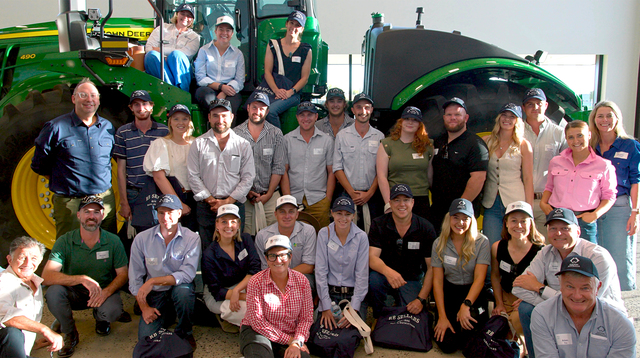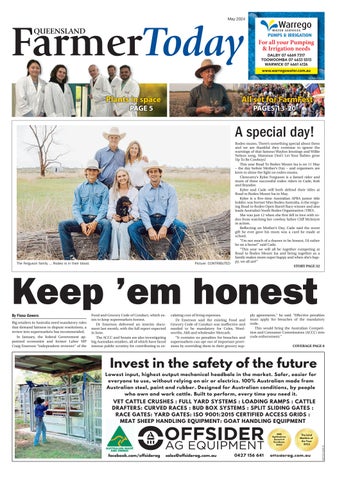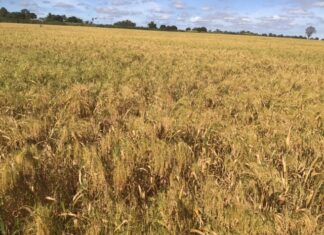With some 70 per cent of Australian family farms expected to transition to the next generation within five years, a key event last month united bright young minds to identify gaps and opportunities to support young farmers.
The Future Farming Forum – hosted by Cotton Australia, RB Sellars and the Future Farmers’ Network – brought together more than 30 young Darling Downs cotton farmers to discuss their challenges, opportunities and training needs.
A highlight was an intergenerational transition session, which allowed for raw examination of the issues associated with transition planning for family farms.
Workshop facilitator Claudia Mitchell said the event was powerful because it led to the discovery of key challenges and skill gaps.
“The gold happened when trust was established in the room, allowing participants to be vulnerable about what they were experiencing on their own farms,” she said.
“Being on farm can be isolating, resulting in tunnel vision so it’s good for growers to step back and connect with people of their own ages from other businesses.
“The feedback was raw and the peer-to-peer learning resulted in practical conversations and admissions of the difficulties in family transition planning and in running a family farm successfully.”
The key gaps identified were:
* Business management skills and training,
* Communication skills and methods, particularly intra-family, and
* People skills, including having difficult conversations, leading teams and managing people.
The group discussed key strategies and processes to help businesses maintain open communication and preserve relationships. They included regular meetings, technology to enable connection, clear chains of command and the ability to compromise.
Darling Downs grower David Walton was well placed to add value to the workshop having gone through intergenerational change over the past five years.
“Everyone goes through the same challenges with siblings not knowing what’s fair and what’s equal,” he said.
“Then there’s partners of siblings and their children and unless there’s good communication and people are talking openly it can create real problems within families.”
David said an outside facilitator was the key to their success in the transfer of the farm from the parents to the children.
“Getting someone external takes the emotion out of the equation because someone is looking at the whole situation from the outside, communicating and assigning tasks to move forward.”
Cotton Australia CEO Adam Kay, who was at the workshop, said the peak body for growers would take whatever action it can to help.
“It’s clear some growers are looking for business planning and interpersonal skills and we have done a lot of work through Smart Ag Queensland so we will be looking for courses to help with these key areas,” he said.
“I’m sure we are going to be able to deliver for these growers by guiding where the training goes next.”
Another of the participants, Goondiwindi grower Grace Griffith – a graduate of the Future Cotton Leaders Program – said the Cotton Australia and CRDC program had helped her improve her business management and communication skills.
“Future Cotton Leaders gave me new skills and confidence and has helped our family business,” she said.
“It has also enhanced my leadership ability, leaving me confident to contribute on boards and committees and, in doing so, I feel I am giving back and helping other young farmers.”









